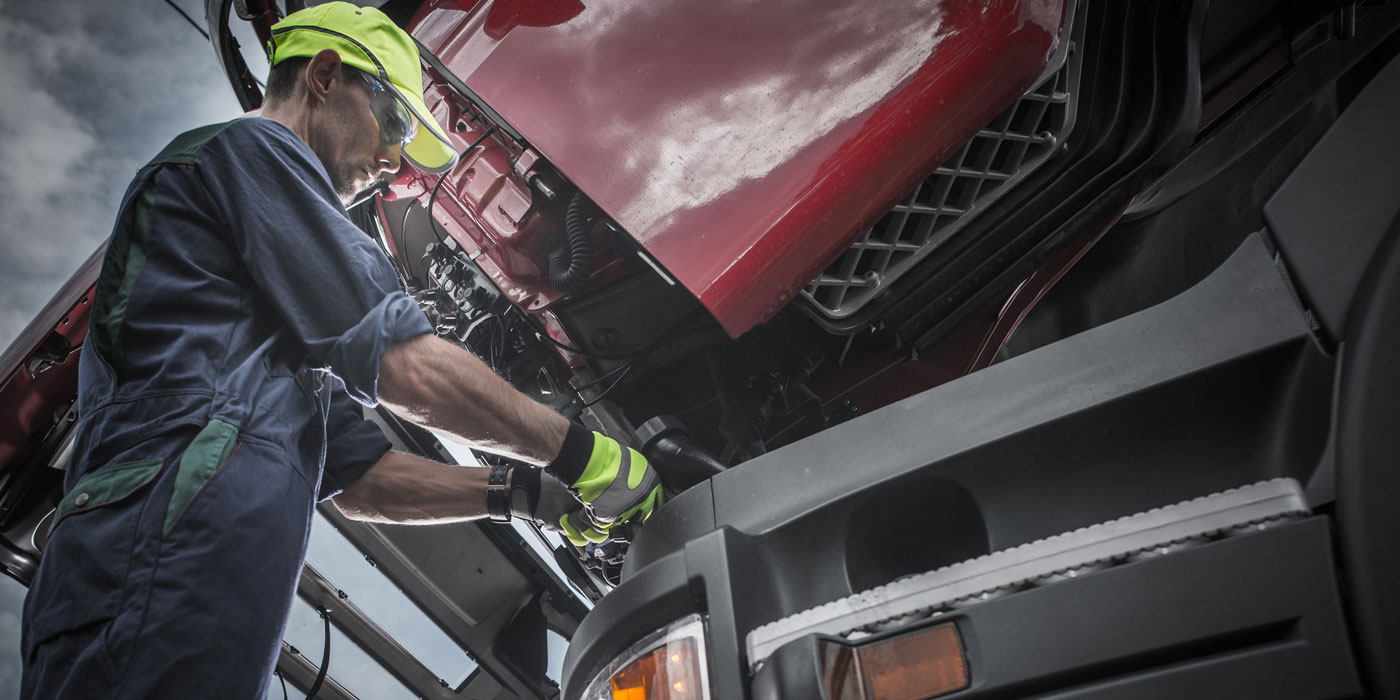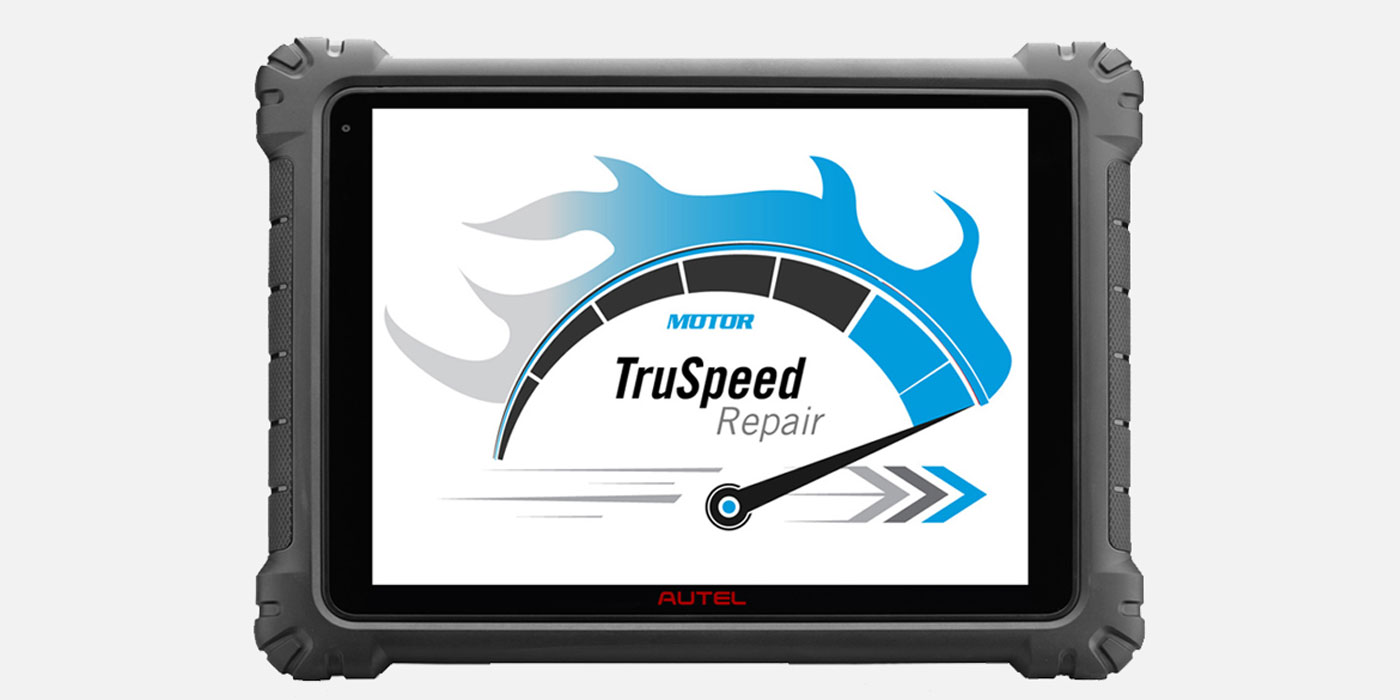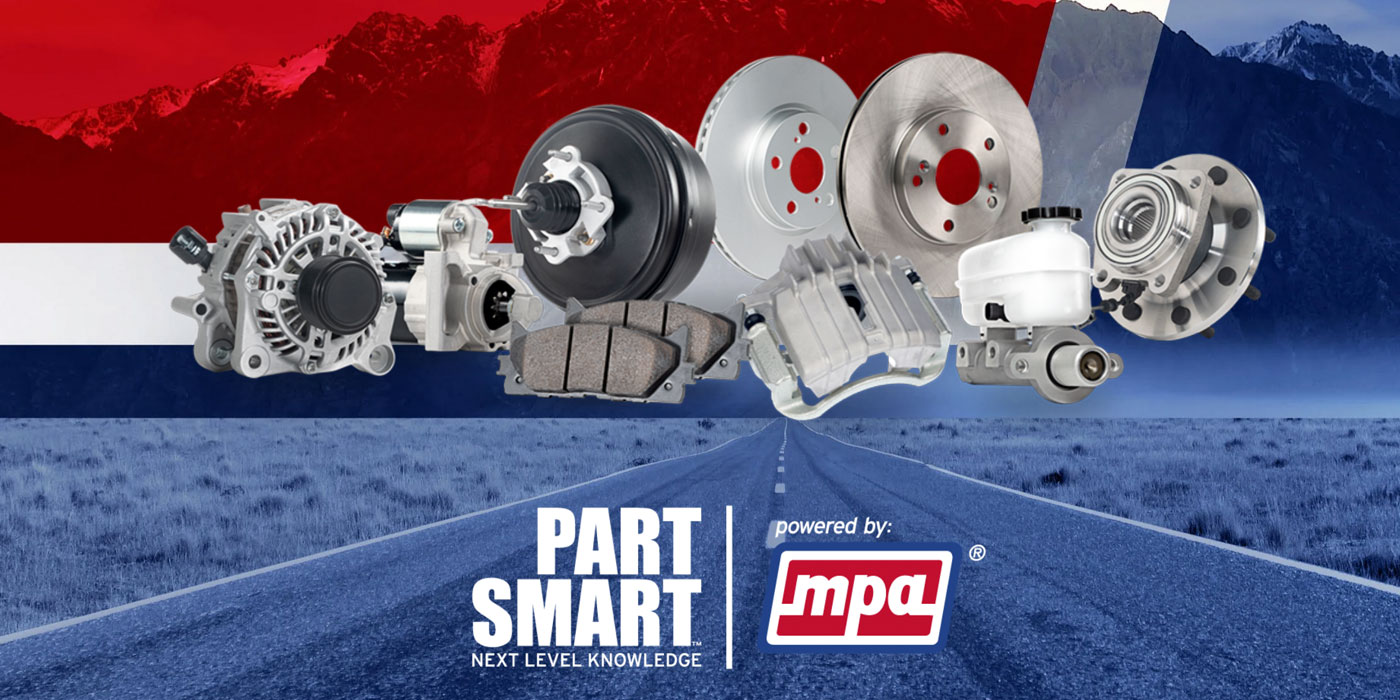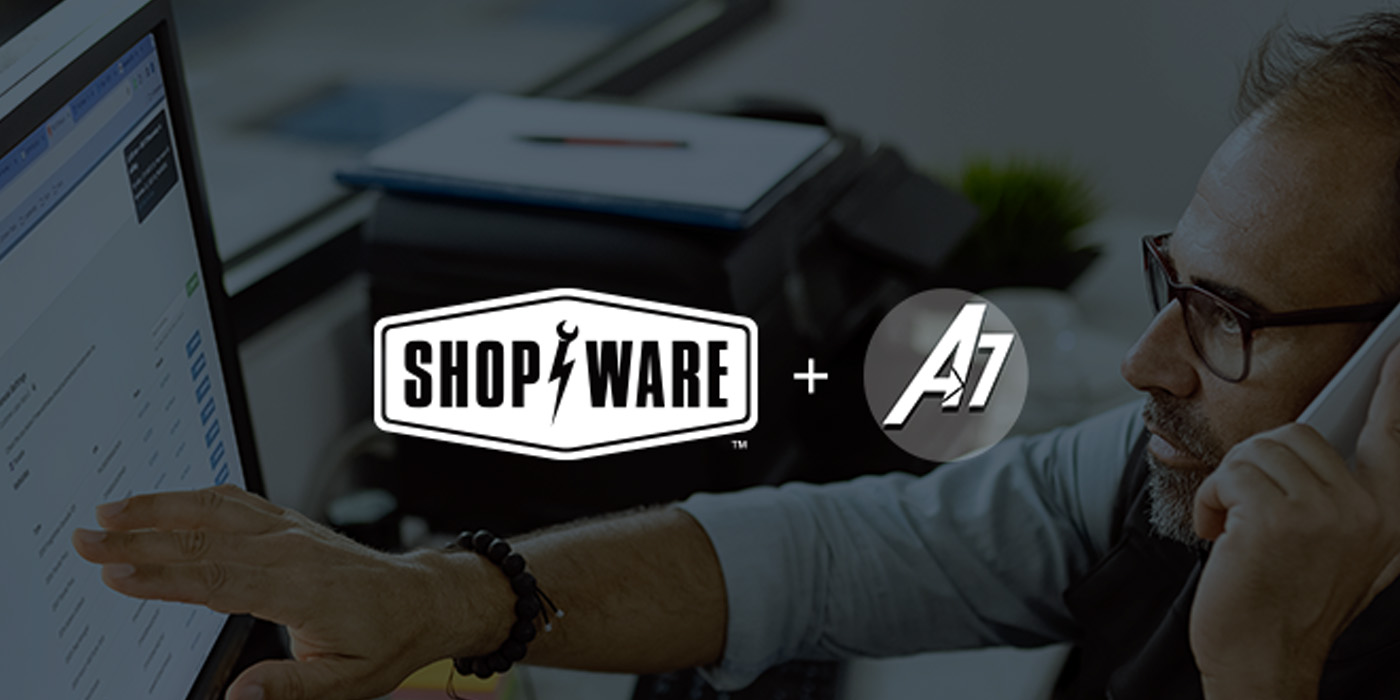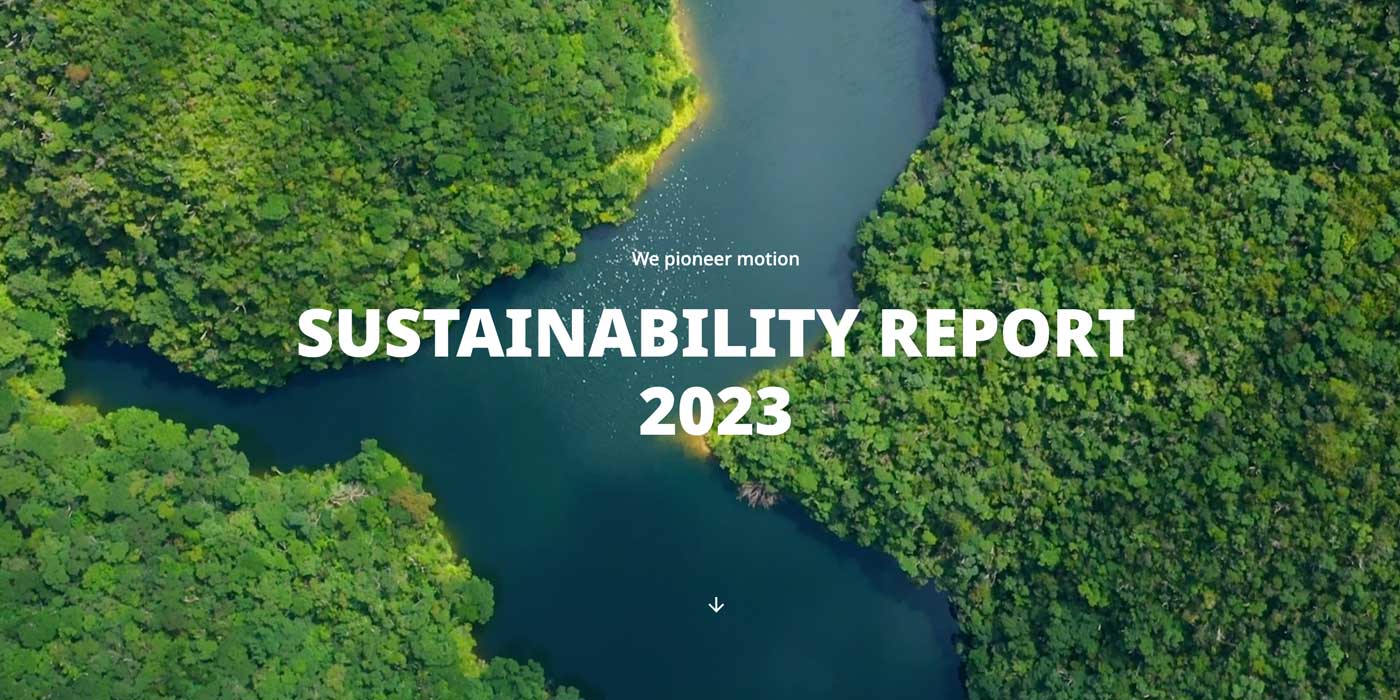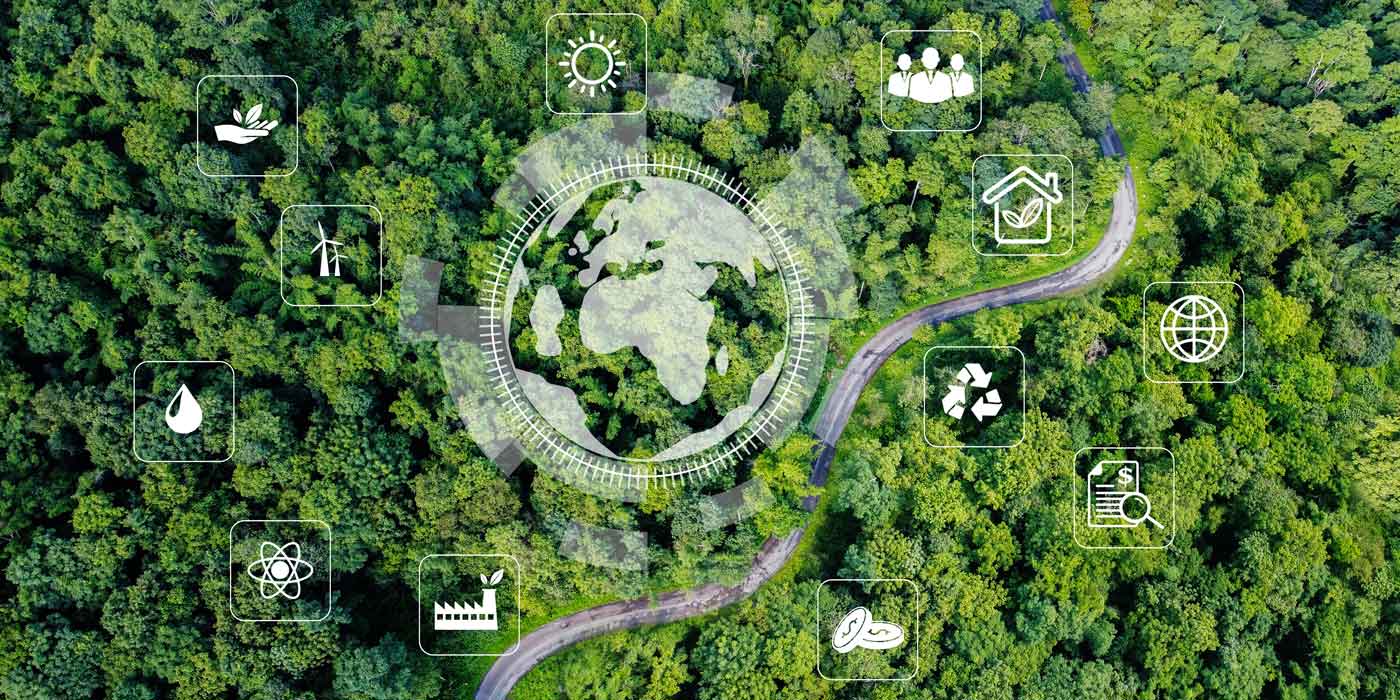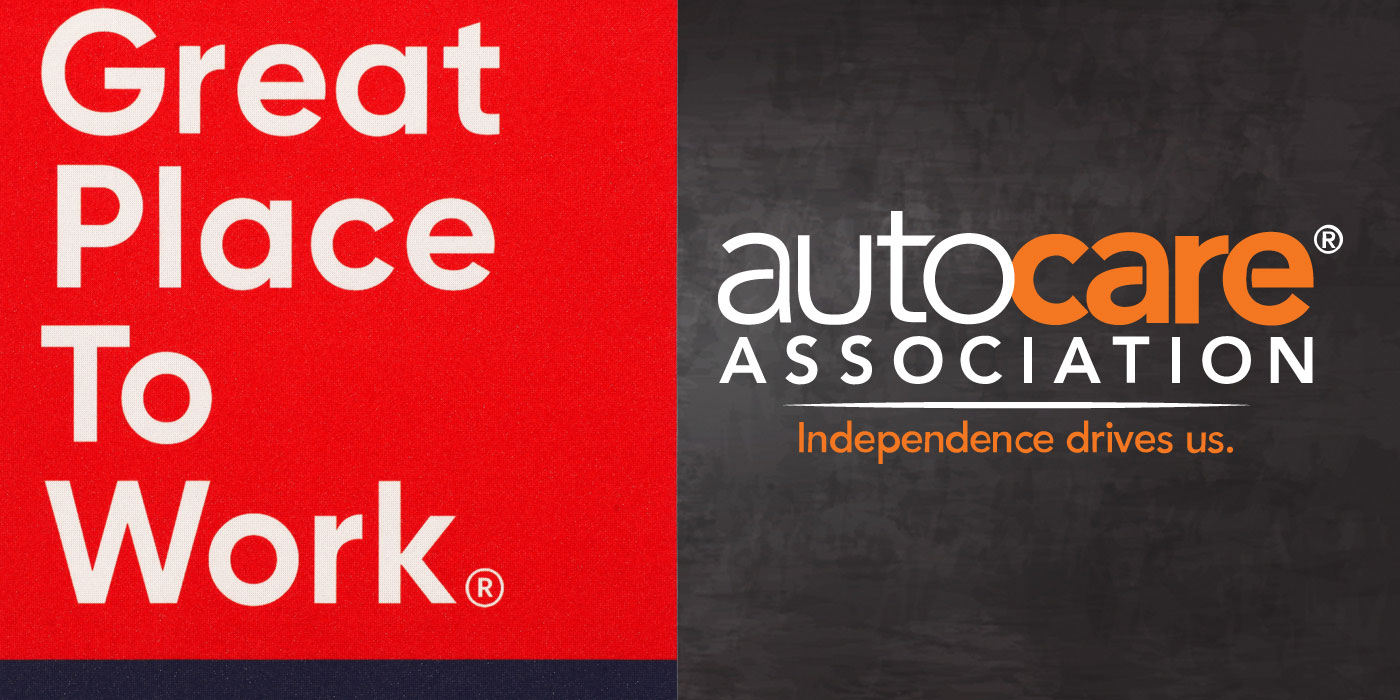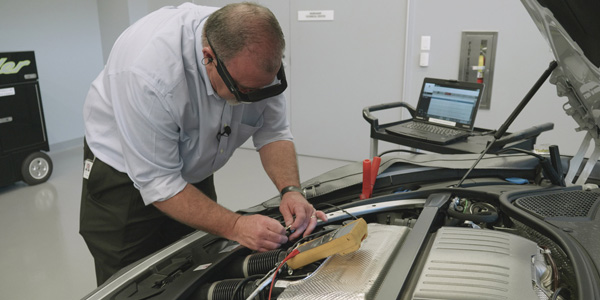
Technicians at Porsche’s 189 U.S. dealerships soon will be able to use augmented reality to improve their service capabilities.
Starting this week, Porsche Cars North America is rolling out “Tech Live Look,” which connects dealership technicians to remote experts via “smart glasses” for a live interaction that can shorten service resolution times by up to 40 percent, according to the automaker.
Tech Live Look combines computerized eyewear and augmented reality software to allow remote experts hundreds of miles away to see what a service technician is seeing and provide feedback while the technician works hands-free. The system uses ODG (Osterhout Design Group) R-7 smart glasses and the AiR Enterprise software platform from Atheer Inc.
“Tech Live Look is the kind of digital innovation Porsche values because it raises the quality of the customer experience,” said Klaus Zellmer, president and CEO of Porsche Cars North America. “By solving issues faster, our dealer partners can get their customers back into cars with less disruption. And our overall service quality increases as we share expertise more efficiently between our experts and dealer technicians.”
How Does It Work?
Until now, a complex or unusual technical issue could go back and forth repeatedly between a dealership and the Porsche Cars North America technical support team. It could take multiple electronic messages, phone calls, photos and even onsite visits by Porsche’s field technical managers to identify and diagnose the issue for repair.
Tech Live Look substantially shortens and enhances that chain of communication, according to Porsche.
A service technician at a dealership, for example in Los Angeles, dons the smart glasses and connects – through the software – with the Atlanta-based Porsche technical support team 2,200 miles away. Via high-definition live video from the glasses, the support team sees exactly what the technician is seeing.
The expert in turn can project step-by-step technical bulletins and schematic drawings onto the display inside the technician’s glasses, as well as take screen shots and enlarge images for better visibility. The technician can open and view documents while working hands-free on the car.
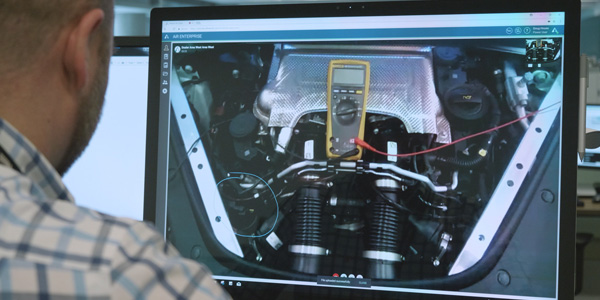
“This information exchange is far more efficient than sending electronic forms and photos or explaining complex technical issues over the phone,” Porsche said.
On the heels of a successful pilot program in 2017, the automaker will deploy the system at three of its U.S. dealerships this week. The goal is to have 75 dealers on board by the end of the year and most of the remainder in 2019, the automaker noted.
Dealers began signing up for Tech Live Look in April.
In April, Tech Live Look won a Best-in-Class Award from the annual Field Service USA conference, which focuses on improving efficiency and effectiveness of field teams across many industries. The award was for “Most Effective Technology Deployment to Increase Service Levels.”
Big Growth Projected For Smart Glasses
ABI Research forecasts that the global market for smart glasses will hit $5.5 billion in 2022, increasing at a compound annual growth rate of 177 percent between now and then.
“The automotive industry is ripe for digital transformation, and augmented reality presents one of the most promising ventures for the market across the value chain,” said Eric Abbruzzese, principal analyst at ABI Research. “Porsche’s announcement highlights this, with the hands-free and connected capabilities of smart glasses proving invaluable for technician efficiency. Manufacturers, designers, service technicians, dealerships and marketers can leverage AR in unique and tailored ways, making the automotive industry a rapidly expanding market both in scale and opportunity.”



